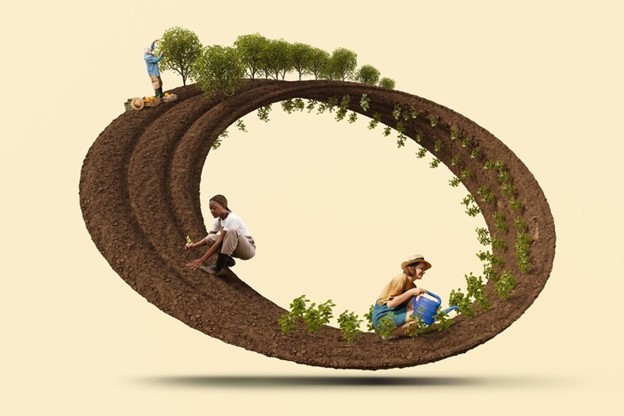
With the world’s population always on the rise, there has always been immense pressure on the agricultural industry to meet the ever-growing demand for food. According to the United Nations, the population growth shows no signs of stopping and is expected to reach 10 billion by 2050. Thus, to maintain food security, farmers have long been forced to follow a concept called industrial farming, which involves producing large quantities of food through intensive farming. However, such practices in agriculture are not sustainable in the long run as they negatively impact the environment.
For this very reason, people have turned towards sustainable agriculture as an alternative to industrial farming which promotes eco-friendly practices and helps protect the environment for future generations.
At its core, sustainable agriculture involves cultivating crops and raising livestock in a manner that minimizes the impact on the environment, and supports the livelihood of farmers while also meeting the current needs for food production. It is a concept that has been gaining increasing attention in recent years due to the diminishing natural resources, changes in climate and population growth. In addition to protecting the environment and encouraging biodiversity, sustainable farming solutions are also aimed at building a socially and economically sustainable agriculture system. This approach enables farms of all sizes to be more profitable and contribute to the local communities, helping the future generation of farmers and fostering a just food production system.
The field of research that works towards the development of sustainable agriculture is known as Agroecology. Known as the science of managing ecosystems, it focuses on the interconnectedness of environmental, social and economic factors in the sector of agriculture and food protection.
Adopting sustainable agriculture practices can help in addressing many environmental, economic, and social challenges. Here are some of the major reasons why it is important to practice sustainable agriculture-
Sustainable agriculture practices, such as crop rotation and cover cropping, contribute to soil fertility, reduce erosion, and minimize the need for chemical inputs. These methods promote biodiversity, creating strong ecosystems that benefit both flora and fauna.
Drip irrigation and rainwater harvesting in sustainable agriculture optimize water use, mitigate the impact of droughts, and protect water quality. These practices not only safeguard local water resources but also contribute to global water sustainability.
Eco-friendly agriculture practices, like integrating trees into farming systems help in lessening carbon ultimately reducing greenhouse gas emissions. Organic farming methods, by reducing synthetic inputs, minimize the carbon footprint that is usually the result of traditional agriculture.
Diversified farming systems in sustainable agriculture enhance farmers' resilience to market fluctuations and reduce market shocks, resulting in a stable income. Since this type of agriculture involves fewer inputs, there are fewer expenses.
Sustainable agriculture fosters community well-being by promoting fair labour practices, supporting local economies, and providing nutritious, locally sourced food. It aligns with the principles of ensuring equitable access to resources and promoting food security.
Sustainable agriculture includes a range of practices that focus on preserving the environment, maintaining soil health and promoting long-term food production. Some of the major types of sustainable agriculture practices are-
Crop rotation involves the systematic planting of different crops in a specific sequence on the same piece of land. This practice helps prevent soil degradation, control pests and diseases, and enhance nutrient cycling.
Integrating cover crops and perennials into farming systems is an important part of sustainable agriculture and organic farming. Cover crops protect soil from erosion, improve fertility, and suppress weeds. Perennials, with their deep root systems, contribute to soil structure and stability over time.
Organic pesticides derived from natural sources are preferred over synthetic alternatives, minimizing the environmental impact. This approach promotes healthier crops grown in a sustainable manner and reduces the risks associated with chemical inputs.
Drip irrigation systems deliver water directly to the root zones of plants, minimizing water wastage. By optimizing water resources, farmers contribute to water conservation, especially in regions prone to water scarcity.
Agroforestry integrates trees and shrubs into agricultural landscapes. The combination of trees and crops in agroforestry systems contributes to a sustainable farming system by creating resilient and diversified ecosystems.
Thus, the importance of sustainable agriculture cannot be overstated. As the global population continues to rise and environmental challenges intensify, adopting practices that prioritize the health of our planet is not just an option but a necessity. By embracing eco-friendly farming practices, we can create a sustainable future where agricultural practices meet our current needs without compromising the ability of future generations to meet their own.